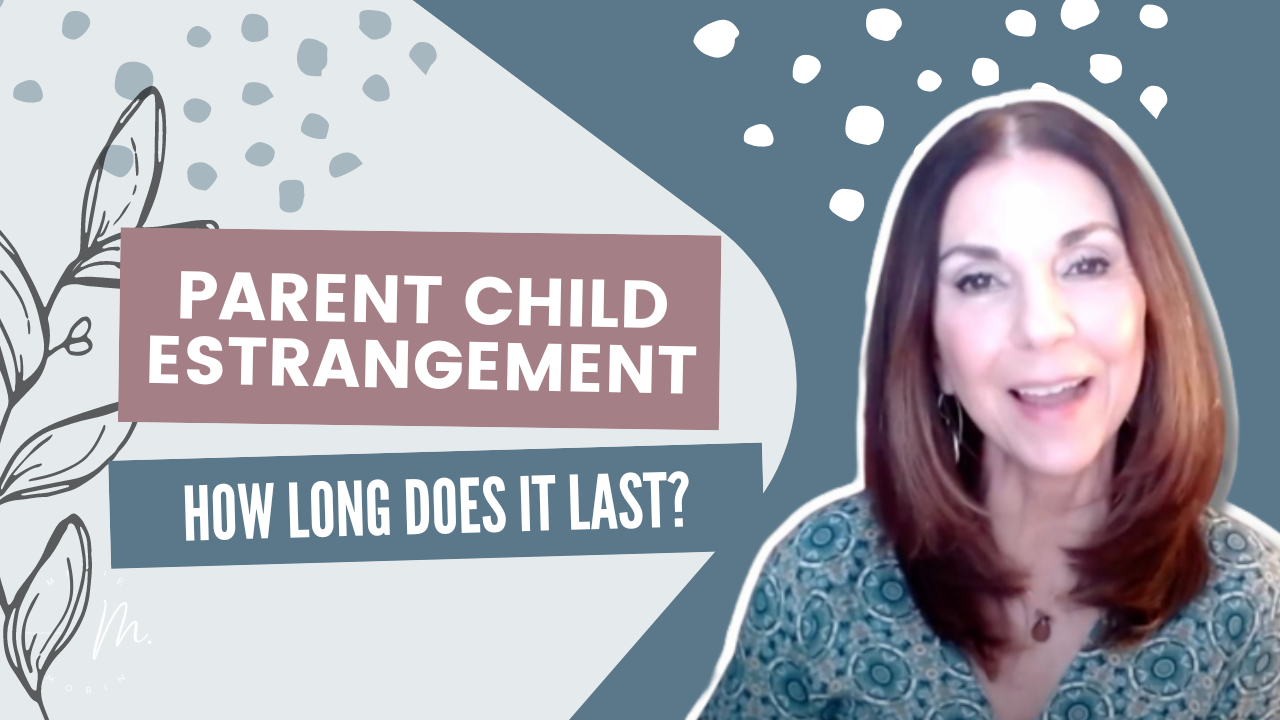Parents of estranged adult children experience grief over the loss of the relationship. Many worry tirelessly about when their kid will see them again. Parents look for reasons and answers so the pain will stop. The average length of estrangement is four and one-half years. But what can complicate a parent’s efforts to reconcile with their adult child? In this article, we discuss How Long Parent Child Estrangement Usually Lasts?
When adult children cut ties, parents are left confounded. Questions such as “When will my child want to see me again?” and “how long will this go on?” are asked. More research is needed to help understand the nuances of this condition and help family members. Karl Pillemer, author of Fractured Families and How To Mend Them, researched about 1300 people and found on average, family estrangement can last 54 months or 4.5 years. Of those interviewed, 85% were estranged for a year or more. Half of the respondents had no contact for four or more years. Kylie Agillia’s research of 35 individuals with parent-child estrangement lasting from 1 month to 39 years, with the average separation lasting nine years.
What Impacts Estrangement Length?
Family dynamics, present and past behaviors, abuse, and perceptions of the estranged and the initiator of estrangement can impact separation length. Many estranged individuals question when there might be reconciliation. Research reports that family members have interchanges ranging from distant communication to highly dysfunctional and charged exchanges. Individuals who habitually react in family rifts will likely react after an adult child declares they have been cut off.
Parents are upset and anxious and, naturally, want to know what has happened to their children. Unfortunately, adult children who decide to cut ties are likely in a tenuous state of mind and need a reprieve from stressful situations.
The elements that impact the length of estrangement are your reactions, the adult child’s state of mind, the social or family pressure aimed at adult children, and the fact that people change over time.
- Your Reactions to Your Adult Child
Parents can ask themselves questions to assess their behaviors after an estrangement.
Adult children comment on needing their parents to respect their wishes and honor their request for time. Also, kids require their parents to change significantly. In essence, if a parent were highly involved in a child’s life, the parent would need to refrain from involvement.
a. Are you refusing to respect their wishes for no phone calls by calling them, texting them, and leaving messages they asked you not to do? Or are you respecting them by letting them be?
b. Are you disrespecting their request for no contact by showing up unannounced or stalking them on social media and sending messages? Or are you accepting that they need space and waiting for an open door?
c. Are you allowing yourself to grieve without dumping on your adult child by writing angry or emotional letters that may be laced with guilt? Or are you listening empathetically to what they feel and need from you?
d. Are you ready and waiting at any opportunity to be defensive or justify your behaviors with your adult child? Or are you using this time to get support from a professional who can help you go through this process and move forward?
If you’ve answered these questions and thought you probably could have done better, you are not alone. It is pervasive for parents to be quite upset and react. The point of the questions is not to illicit guilt but to encourage you to move forward. Learn communication skills, stay informed, and prioritize your well-being. We can not know when your adult child will want to see you. But you will move through the grief and find your life again. Nothing is guaranteed, and there is no easy solution or scenario.
We know that parents can do all the best practices and find their adult child is still not interested in reconciling. Many of these parents look towards a future with their spouses, other family members, and friends who love and value them.
- Your Adult Child’s Perception and State of Mind.
You may not know the entire reason for your adult child’s estrangement. Maybe they have told you, and you were defensive or so hurt that you retaliated. You are not responsible for their actions, only your own. They may need space from you because of a history of challenging interactions; they can no longer manage the discomfort around you. Your adult child may also struggle with a lot of emotional stress.
Joshua Coleman, the author of the book Rules of Estrangement, discusses how cutting ties is a compilation of factors that include personality, histories, life challenges, and genetics that collide. There is no defined one reason or one person’s fault but more like a perfect storm that results in cutting ties.
Coleman’s approach is one of understanding it is not about who is right or wrong, but are you willing to look at what your adult child has told you and see their perspective?
Can you find empathy for them? For this, you need self-awareness and self-reflection as a parent who will need to change if you hope your attempts will shorten the estrangement.
The problem of the estrangement is not fair, and your adult child has the final say on when and if. Coleman calls this phenomenon an “Asymmetrical Balance of Power.” Adult children get to decide no matter how upset the parent feels. This can be devastating for parents and engender feelings of grief- denial, bargaining anger, depression, and shock.
- People Change Over Time.
Research tells us that in time people’s perspectives soften and change. They may be more likely to reach out as they get older and have more incentive to want to see you than continuing the cut-off. Time softens people’s outlooks and perceptions. As people age, they tend to see their family members differently.
Unfortunately, adult children who have been emotionally and physically abused work hard at not reconciling. The relationship with their parent is too painful and dangerous to consider being around them. For these kids, the emotional damage is so significant that cutting off was an act of self-preservation.
- Stress and stigma- adult children who are cut off are often judged for their actions. There is enormous pressure from society and others to reconcile. Adult children endure psychological angst and turmoil over estrangement, which also stresses them.
Estranged parents can count the days, months, and years of their adult child’s cut-off date. It is a depressing affair. One day is too long for parents who pine over their adult children. Grieving requires a supportive professional to assist one in moving forward despite the adult child’s decision. Research informs us that parents have the resources to move forward and accept their child’s cut-off. More importantly, they can become more self-aware to prepare for an inevitable meeting with their adult child.
Parents and adult children who reconciled typically were persistent; they worked with a counselor, practiced self-examination, and came to accept their family members’ shortcomings. Typical behaviors and characteristics of estranged parent-adult-child relationships include stonewalling and avoidance. Parents who gain support to alter their behaviors and communication patterns will hopefully benefit from their desire to reconcile.
Family estrangement is when one member intentionally decides to detach from others. Parting creates an emotional and physical distance that is psychologically troublesome for all involved—the length of separation and when it will end also vary. Adult children have an asymmetrical balance of power. This article discusses How Long Parent and Adult Child Estrangement Usually Lasts.
Resources:
Agllias, Kylie. Family Estrangement A Matter Of Perspective. New York, Routledge, 2017.
Coleman, Joshua. Rules of Estrangement. New York, Harmony Books, 2020.
Morin, Marie. Feeling Heartbroken and Alone? How to Pick Up the Pieces When You are Estranged. eBook. 2022.
Morin, M.L. [Morin Holistic Therapy]. (2022, January 4 ). What is Family Estrangement? You Are Not Alone.
Morin, M.L. [Morin Holistic Therapy]. (2021, September 8). Diaphragmatic Breathing: 5-Minute Deep Breathing Exercise for Beginners.
Morin, Marie. How to Deal with Estranged Family During the Holidays (2021, November 21) Sixty and Me. https://sixtyandme.com/estranged-family-holidays/
Pillemer, Karl. Fault Lines Fractured Families and How to Mend Them. New York Penguin Random House, 2020.









